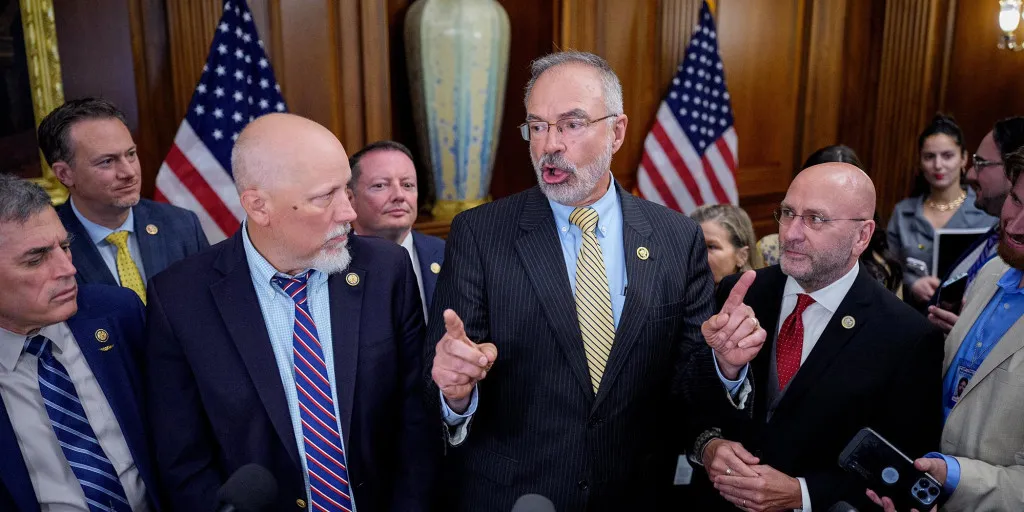In recent months, far-right Freedom Caucus members have talked a good game, right before caving under pressure from the president.
As the Republicans' poorly named "One Big Beautiful Bill Act" came together, members of the House Freedom Caucus made one thing perfectly clear: They did not like this legislation.
The more the evidence showed that the GOP's reconciliation package would add trillions of dollars to the national debt and would fail to include the kind of structural changes to Medicaid that the far-right wanted, the more Freedom Caucus members told party leaders they were prepared to reject the bill.
How would House Speaker Mike Johnson overcome their opposition, which threatened to derail the entire effort? In part by offering some changes to placate the faction's members and in part by waiting for the Freedom Caucus to do what it's done repeatedly in recent months: cave under pressure.
As the dust settles on the early-morning vote, the grand total of House Freedom Caucus members who voted against the bill they claimed to hate was ... zero.
Two GOP members -- Reps. Thomas Massie of Kentucky and Warren Davidson of Ohio -- voted against the package, but Massie isn't a part of the far-right contingent and Davidson was kicked out of the group last summer. Meanwhile, Republican Rep. Andy Harris of Maryland, the Freedom Caucus' current chairman who repeatedly railed against the bill in recent days, voted "present" in a rather pitiful display.
But as striking as it was to see the Freedom Caucus fall in line, just as important was the familiarity of the circumstances.
As a recent Washington Post analysis summarized:
That was published in early April. Several weeks later, it's still accurate.
In recent years, the Freedom Caucus managed to earn a reputation as unrelenting hardliners who rejected compromises, were indifferent to party leaders' pleas, and who had no qualms about derailing GOP proposals they deemed insufficiently conservative. They quickly became a painful thorn in the side of several House Republican speakers.
As a recent NBC News report explained, "They didn't fear government shutdowns; they welcomed them. Their signature move was to collectively withhold votes unless House GOP leaders met their demands. Before this year, most members of the conservative crew had never supported a stopgap spending bill or debt ceiling increase in their entire House careers."
But in 2025, the uncontrollable pit bulls have become obedient lapdogs.
In one especially memorable instance, Freedom Caucus Chair Harris said he was so opposed to his party's budget resolution that Donald Trump shouldn't even bother calling him to twist his arm. The president, the Maryland Republican said in April, should "spend time with people whose minds he might change. He's just not going to change my mind." Around the same time, Republican Rep. Chip Roy of Texas called the proposal "a joke" written by legislators who couldn't "pass a math test."
Two days later, Harris and Roy voted for the bill they'd vowed to oppose.
It's at least possible that in coming weeks and months, Freedom Caucus members will eventually find a bill that they consider unacceptable; but for now, we're dealing with an unmistakable legislative dynamic in which the far-right faction talks a good game, right up until Trump tells them what to do -- at which point the lapdogs roll over.
